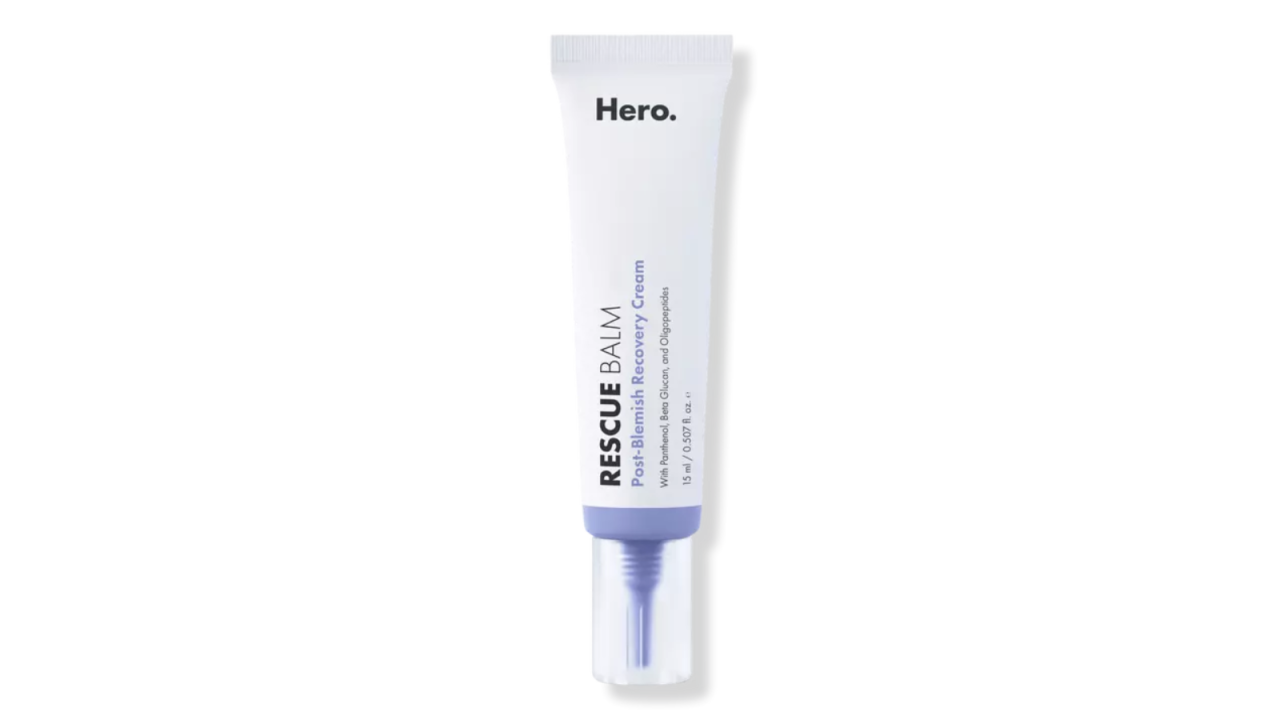When it comes to dealing with acne, finding ways to heal a breakout is only half the battle. After meticulously treating stubborn pimples and applying your favorite spot treatments, you may be left with some form of scarring afterwards.
Acne scars come in many different forms and are a result of the type of pimple that initially caused it. For example, deep, pitted scars that can linger for months (or sometimes even years) are usually caused by a cystic pimple that developed from deep within your dermis. Other types of hyperpigmentation or dark spots are usually what’s left after a typical pustule has healed.
As someone who has experienced several bouts of chronic acne over the years, determining which scar treatments will work best for me is my next skin care goal. Much like other specific skin conditions, it’s all about targeted ingredients that address the main concern — in this case, fading scars and promoting cell turnover.
Generally speaking, many types of acne scars won’t go away on their own or solely with topicals. Dr. Ava Shamban of Ava MD Dermatology notes that “If you’re looking for a more advanced treatment, lasering, microdermabrasion or microneedling are often the the most effective methods to treat moderate to severe acne scars, particularly those which are atrophic or have healed under the skin surface or hypertrophic in which case they have a thick, high raised presentation.”
How to fade acne scars
When it comes to ingredients, topical retinol/retinoids (vitamin A derivatives) are your go-to in order to help resurface the upper layers of epidermis. Shamban recommends staying away from hydroquinone and opting for “arbutin, kojic, lactic and hydroxy acids,” adding that “azelaic and salicylic acids are also great to support the fade.” The dermatologist also approves of vitamin C?for neutralizing free radicals and reducing pigmentation, while niacinamide and rosehip work well for soothing and smoothing. And for particularly pigmented scars, Shamban says, “Cysteamine works best on darker spots. Applied topically, it reduces the amount of L-cystine in the skin.”
It’s also worth noting that the daily use of SPF will also help to prevent pre-existing dark spots or scars from becoming any more intense or noticeable.
With so many active ingredients in play, this led me to wonder if there is any combination of ingredients that wouldn’t be effective or would be something to stay away from when looking to fade acne scars. California-based SkinSpirit aesthetic skin practitioner Tina Frizner remarked to steer clear of using too many topical exfoliants, and that “over-exfoliation can result in disruption of the skin barrier, which can lead to more irritation and more acne.?Avoid this by adding products slowly, only use cool/tepid water to wash the face and be cautious with mechanical exfoliation.”
But just how long will it actually take for these products and ingredients to start working their magic? According to Shamban, “with a potent formula and consistency, one can often see some visible results in two to three weeks. It may take, however, several months to see a deeper or more stubborn scar truly fade and tissue to return to ‘normal.’”
Ahead, check out the six favorite products I’ve tested that fade my acne scars the best.
Time and time again, this serum has worked wonders. Even if I get lazy and forget to incorporate it into my skin care routine for a few weeks, it’s super easy to add back in and has noticeably helped to fade new scars post-breakout.
I feel like this is my secret weapon. This is not only ultra-hydrating, but also minimizes the appearance of pores, something I can always appreciate. The ingredient trifecta of niacinamide, amber algae and encapsulated vitamin C delivers targeted results on scars.
This product made me believe in the power of mandelic acid as an ingredient. The exfoliating active ingredient is somehow gentle enough to work in harmony with my prescription skin care products, and I notice that my skin is better off when using it on a regular basis.
Anyone who has been a regular at the dermatologist’s office for years is no stranger to this product, or ingredient for that matter. The tried and true hero ingredient of adapalene (a retinoid) is ideal for anyone dealing with mild scarring.
If your skin doesn’t quite agree with retinol, this gel cream is a great alternative. The combination of salicylic acid, squalene and hexylresorcinol helps generate cell turnover while actively brightening and soothing.
If you're fresh off your latest pimple-popping escapade, this will help your skin return to a state of normalcy. By delivering intense moisture and soothing any irritation, this balm comes in handy right after a recent breakout. The beta glucan and vitamin E help to replenish the skin while improving texture over time. It also comes in a redness color-correcting version and dark spot camouflaging option.






















